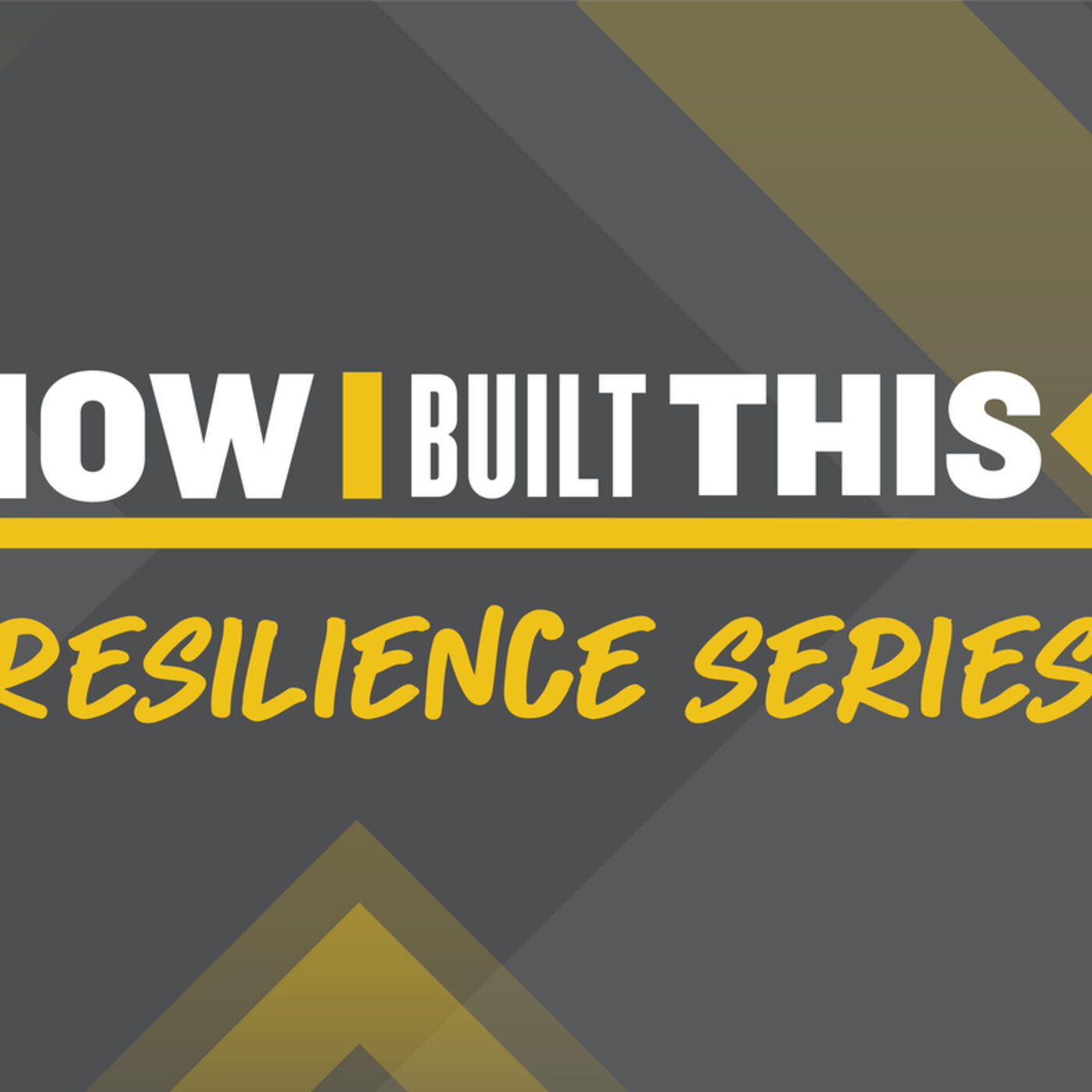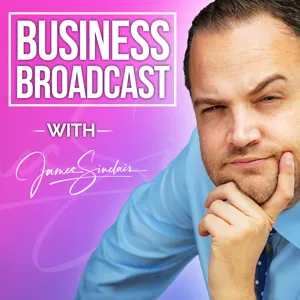Podcast Summary
Finding a gap and filling it with a unique product or service: Justin Gold discovered a lack of delicious almond butter and created a better tasting version, Amica focuses on customer service in insurance, Insparity builds a strong company culture in HR
Building a successful business often involves finding a gap in the market and filling it with a unique product or service. Justin Gold, the founder of Justins, did just that when he started making artisanal peanut and almond butters in his kitchen out of curiosity. He noticed a lack of delicious almond butter options and set out to create a better tasting version. Similarly, companies like Amica and Insparity offer unique value propositions in the insurance and HR industries, respectively, by focusing on customer service and building a strong company culture. Wondery Plus subscribers can listen to more stories of entrepreneurial success and innovation ad-free. And remember, whether it's business or personal, protecting what matters most is essential. So, take a cue from Amica and approach insurance with a human touch. Lastly, investing in a strong company culture can lead to business growth and success. For more insights on building a culture that fuels growth, check out Insparity's free ebook, "The Future of Business is Culture."
Creating a portable reality with nut butter: Unexpected innovations, like squeeze packs, can create new subcategories and propel businesses forward. Study competition and remain determined to learn.
Innovation and differentiation can come from unexpected places. The founder of a nut butter company started with a simple idea to provide portable plant-based protein for mountain bikers. He used the library to learn about business and wrote a business plan. The real game-changer came when he introduced squeeze packs, which allowed consumers to try new flavors and travel with ease. This innovation created a new subcategory of products and made nut butter a portable reality. The founder's passion for peanut butter cups led to the creation of chocolate squeeze packs as well. The squeeze packs not only validated the category but also served as a trial vehicle for the jars, which became the strongest part of the business during the pandemic. The founder's determination to understand the competition by studying glass jars at Whole Foods and reaching out to manufacturers is a valuable lesson for entrepreneurs starting out.
Perseverance and clear vision helped Justin's Nut Butter overcome early challenges: Despite initial unsustainable practices, the founder's determination and focus on sales, marketing, and brand growth led to success. Community support and pandemic demand boosted business.
Perseverance and a clear vision were key factors in overcoming the challenges faced by the founder of Justin's Nut Butter during the initial stages of his business. Despite the unsustainable and unprofitable nature of hand-packing his own nut butter into glass jars, he remained determined to achieve his goals and focus on sales, marketing, and brand growth once he reached sufficient volumes. The local community's support and optimism also played a significant role in keeping him going. During the pandemic, the business experienced a surge in demand, and the team prioritized employee safety, communication with retailers, and maintaining supply to meet the unprecedented demand. The trend of increased consumption of nut butters at home has continued, with a shift away from school lunches and towards more exercise and healthy eating.
Adapting to the Shift in Consumer Behavior and Remote Work: Companies specializing in single-serve and on-the-go products face sales declines, while those adapting to online platforms thrive. Remote work and digital solutions are in high demand, making AI-powered collaboration tools valuable.
The current trend in consumer behavior is shifting towards at-home activities and purchasing in larger quantities due to the pandemic. Companies like Justin's, which specialize in single-serve and on-the-go products, are seeing a decline in sales. However, those that have adapted to online shopping platforms are experiencing success. Additionally, Atlassian, a software company, is leveraging AI to help teams collaborate more effectively and make informed decisions. The pandemic has accelerated the need for remote work and digital solutions, making Atlassian's offerings increasingly valuable. For entrepreneurs, now might be a good time to take a leap and explore opportunities in areas that align with these trends. Atlassian's AI-powered software can help teams accomplish what would otherwise be impossible alone, making collaboration more efficient and effective. Overall, the pandemic has highlighted the importance of adaptability and innovation in business.
Identifying a passion and unmet consumer need: Starting a business involves identifying a consumer need and being passionate about it, even if the initial venture fails, the experience can lead to future success through learning and pivoting.
Starting a business requires identifying an unmet consumer need and being passionate about it. Justin Gold, founder of Justins, started his business in college with a passion for nut butters and an unmet consumer need. He emphasizes that now is a great time to start a business if you have a problem to solve and are passionate about it. Even if the business fails, the experience can lead to success through learning and pivoting. Gold also mentions the importance of believing in the idea and seeking encouragement. The New York Times best-selling book "How I Built This" provides inspiring stories of entrepreneurs who started from the bottom and turned their ideas into successful businesses. C4 Smart Energy, a product containing natural caffeine and vitamins, can help support mental focus and well-being during the entrepreneurial journey.
Starting a business with passion and determination: Find a passionate idea, work hard, prioritize employees, build a strong brand, and establish relationships for business growth.
Following your passion and believing in your idea, even in the face of skepticism and challenges, can lead to success. Justin's story of starting a business making organic peanut butter and almond butter is a great example. He encountered naysayers, including his own parents, due to the competitive nature of the category. But he was driven by his excitement for the product and his commitment to making it a success. He put in long hours, worked multiple jobs, and prioritized his employees before himself. Through determination and hard work, he was able to turn his passion project into a thriving business. For those looking to find an idea or start a business, Justin recommends finding something that excites you and feels like fun, rather than work. And be optimistically cautious, putting others before yourself until the business is stable and can support everyone involved. As for someone selling a coffee alternative at a farmer's market looking to expand to regional distribution, it's important to build a strong brand, establish relationships with potential buyers, and have a solid business plan in place. Networking and attending industry events can also be valuable in making connections and learning about opportunities.
Build locally, expand concentrically: Establish a strong foundation, differentiate, innovate, and expand into new markets while maintaining product quality and sustainability.
To build a successful business, starting locally and expanding concentrically is crucial. Begin by establishing a strong foundation in your home market, making your product ubiquitous and recognizable. This approach creates consumer awareness and interest, allowing you to assess what market sectors to expand into next. Differentiating your brand from competitors is essential, and staying consistent in product quality, innovating, and having a greater purpose are effective strategies. Regarding the use of ingredients like palm oil in products, it's important to ensure they are sustainably sourced to maintain consumer trust and minimize controversy.
Reconsidering Priorities During the Pandemic: Justin Gold values family time during the pandemic and emphasizes the importance of adapting to changing circumstances in both personal and professional life.
Even though small amounts of sugar can be found in various food products, the pandemic has forced us to reconsider our priorities and habits. Justin Gold, founder of Justins, shared during an interview that he values the time spent with his family during the pandemic and will continue to prioritize that in the future. He also emphasized the need to adapt to the evolving world and consider the impact on food categories and the way we interact with each other. Gold's experience highlights the importance of finding balance between personal and professional life, and the significance of adapting to changing circumstances.
Don't miss out on life's joys: Subscribe to Wondery Plus or use Amazon Music with Prime for ad-free listening and fully immerse in content
Life is short, and we should make the most of it by engaging in meaningful conversations and experiences. During our discussion, we touched upon the topic of favorite potato varieties, but the underlying message was clear: don't miss out on the important things in life. If you're looking to streamline your listening experience and eliminate ads, consider subscribing to Wondery Plus or using Amazon Music with a Prime membership. These options offer ad-free listening, allowing you to fully immerse yourself in the content without interruptions. So, join us in our exploration of life's joys, big and small, and remember that every moment counts.



![Rob interviews Founder of Renowned Childcare Brand Kiddicare and Serial Entrepreneur, Neville Wright [Business, mindset, entrepreneur, disruptors]](https://www.podcastworld.io/podcast-images/disruptors-kt0uj0xy.webp)
